Recently, relations between Japan and a number of other countries have grown close in many respects. Everywhere Japanese products are overflowing in foreign markets. No matter where you go in the world, you can find the foot steps of Japanese tourists. Ties between Japan and foreign nations are flourishing not only in the economic realm but also in relation to Japanese culture and things Japanese. Prior to the Pacific war when I was still a young man, who could have imagined the present level of exchange between Japanese nations abroad?
“The only way for humanity to attain happiness is by polishing the spirit. “
The progress of civilization has completely changed our concept of time and space. The time required to travel from Tokyo to Kyoto during the Edo period (along the Tokkaido route of 53 stations) would today be enough to travel around the world several times. It’s frightening when you think about it. And of course the moon, which long ago figured as an object of religious, has now come to be regarded as a real object.
Around 1937 or 38, when I was attending middle school, there were hardly any foreigners practicing Aikido. On those rare occasions when a foreigner would enroll it was a very unusual event and it would become the topic of conversation. Recently, I had the pleasure of conversing with Takamasa Yoshizaka for an article published in this newspaper (“Aikido Shimbun”). One day many years ago, his father came to practice bringing with him the Italian ambassador at that time. An article came out about this event in the big newspaper. I can remember as a middle schooler being very proud of how I succeeded in answering a number of the ambassador’s indiscreet questions. Nevertheless, times have changed now and it’s very rare not to see many foreigners at the dojo.
“Aikido attracts many devotees and enthusiasts because it is considered a superior training method from the self-improvement standpoint. And, it is necessary to experience the taste of intensive training through which a strong center is developed. Without the latter, your mind and body remain disconnected and a realization of the essence of Aikido will not be possible.”
During times like these with things expanding in all directions, without a firm grasp of the path of self-discipline rooted in strong convictions, you will be easily led astray by exterior things. People nowadays recognize that as things Japanese spread worldwide, what is important is that their essence be preserved. Formerly, the popularly held belief was that any “Do” (way, path) originating in Japan would, having undergone a transformation in outer form, lose its traditional Japanese character whenever transplanted abroad.
Now then, the thing we shouldn’t become confused about is that a man’s most precious thing is his spirit. The only way for humanity to attain happiness is by polishing the spirit. Aikido attracts many devotees and enthusiasts because it is considered a superior training method from the self-improvement standpoint. And, it is necessary to experience the taste of intensive training through which a strong center is developed. Without the latter, your mind and body remain disconnected and a realization of the essence of Aikido will not be possible. The same holds true for the Aikido which continues to spread throughout the world. If its source is neglected, it will become nothing more than a balloon with its string cut and will come to the same fate as an illusive dream. Today, in many places throughout the world, those teachers who trained at Hombu Dojo all continue their serious study and form par of a nucleus. As training progresses, the invisible string tied to the “Do” becomes thicker and stronger. For this I pray from the bottom of my heart that the world become full of splendid individuals and societies.
Translated by Stanley A. Pranin and Shoji Takimoto. This editorial appeared in the November 11, 1975 issue of “Aikido Shimbun”, the official publication of Aikido Headquarters in Tokyo.

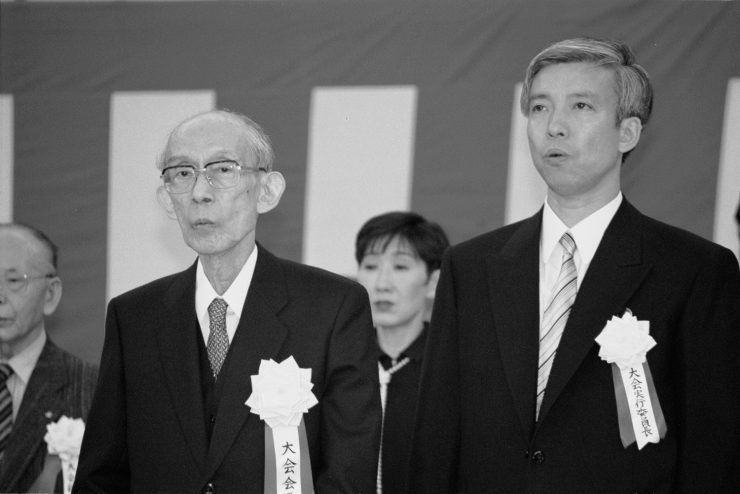

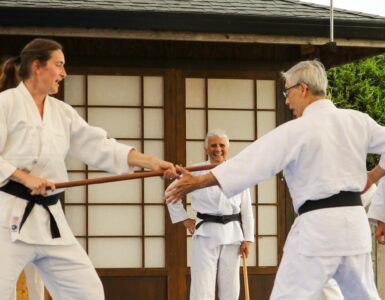
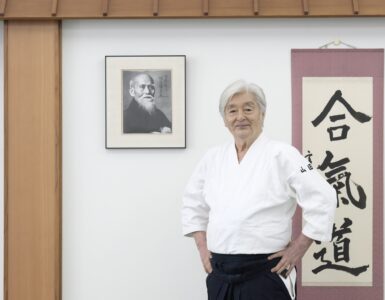
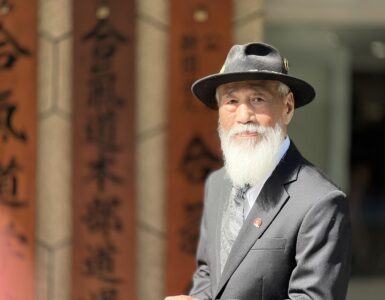

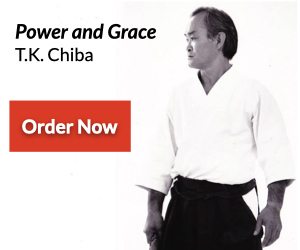





Add comment